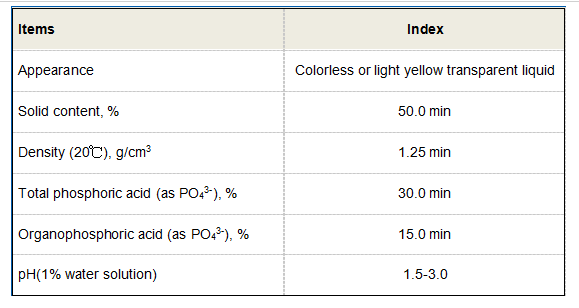Effective Strategies for Water Scale Prevention and Inhibition Solutions
Water Scale Inhibitors Essential Solutions for Water Treatment
Water scale, composed primarily of minerals such as calcium and magnesium, is a common problem in many industrial and residential water systems. When water is heated or evaporated, these dissolved minerals tend to precipitate out, forming hard deposits that can lead to operational inefficiencies, costly maintenance, and equipment failures. To combat this issue, water scale inhibitors have become crucial components in modern water treatment processes.
Water scale inhibitors are chemical substances that help prevent the formation of scale by altering the crystallization process of minerals. They work by either dispersing the particles or modifying their structure, ensuring that they remain in a dissolved state while flowing through pipes, boilers, and cooling towers. The most common types of scale inhibitors include polyphosphates, phosphonates, and organic polymers, each with unique mechanisms of action and applications.
One of the significant benefits of using water scale inhibitors is their ability to enhance system efficiency. In industrial settings, especially those reliant on boilers or cooling systems, scale buildup can dramatically reduce heat transfer efficiency. By minimizing scale formation, these inhibitors help maintain optimal thermal efficiency, thereby reducing energy consumption and operational costs. This is particularly relevant in industries such as power generation, food processing, and HVAC, where even small scale deposits can lead to substantial inefficiencies.
water scale inhibitor

Moreover, water scale inhibitors contribute to the longevity of equipment. Scale deposits can cause significant wear and tear on machinery, leading to frequent repairs or replacements. By preventing scale formation, these inhibitors help maintain the integrity of piping systems, boilers, and heat exchangers, ultimately extending equipment life and lowering maintenance costs.
Environmental concerns are also central to the discussion of water treatment. Many traditional methods of scale prevention, such as the use of acidic cleaners, can have detrimental environmental impacts. Water scale inhibitors, on the other hand, can be formulated to be less toxic and more environmentally friendly. By utilizing these inhibitors, industries can meet regulatory standards while minimizing their ecological footprint.
In summary, water scale inhibitors play a pivotal role in modern water treatment. By preventing the formation of mineral deposits, they enhance system efficiency, extend the life of equipment, and offer an environmentally friendly alternative to traditional scale prevention methods. As industries continue to seek sustainable solutions, the importance of effective water scale management through these inhibitors cannot be overstated.
-
Water Treatment with Flocculant Water TreatmentNewsJun.12,2025
-
Polymaleic AnhydrideNewsJun.12,2025
-
Polyaspartic AcidNewsJun.12,2025
-
Enhance Industrial Processes with IsothiazolinonesNewsJun.12,2025
-
Enhance Industrial Processes with PBTCA SolutionsNewsJun.12,2025
-
Dodecyldimethylbenzylammonium Chloride SolutionsNewsJun.12,2025





